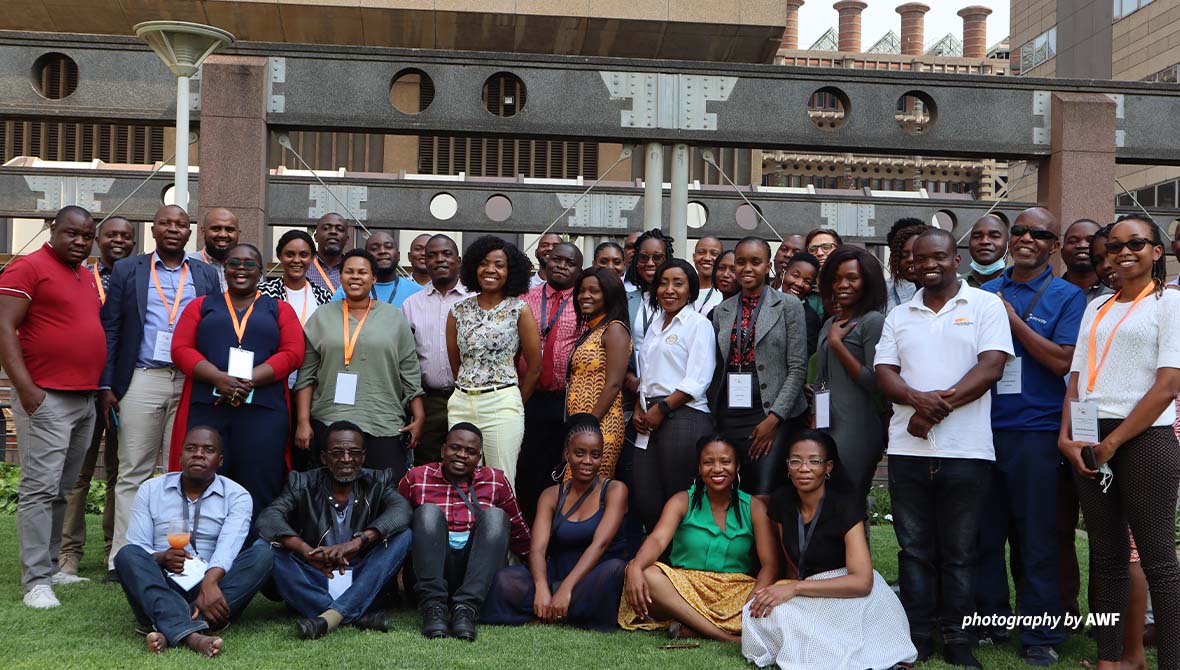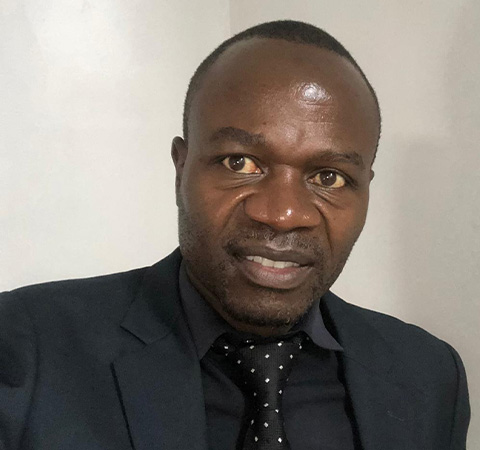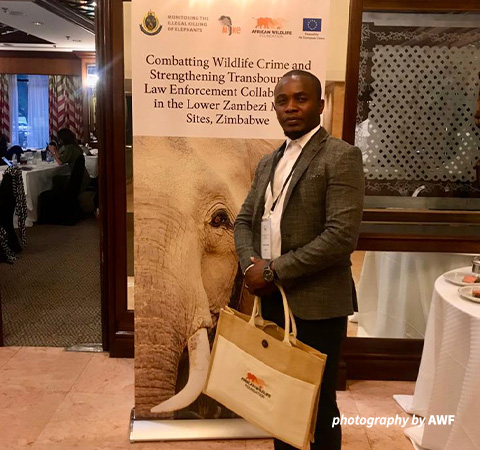World Environment Day: Zimbabwe’s journalists are changing the media landscape after AWF-led training

AWF hosted the Southern Africa Advanced Training on Environmental Journalism in November 2021 in Harare.
Over a year after an AWF-led environmental journalism training, four journalists have taken full advantage of their new skills—and the Southern African media landscape is better for it. This World Environment Day, AWF is celebrating their award-winning stories, deep dives into issues that lack sufficient coverage, and work deepening public interest in environmental issues.
Despite the persistent issue of environmental threats, environmental reporting is still a challenge in Zimbabwe due to the lack of reporting skills by some journalists, the commercialization of media houses, and the lack of interest in the environment news beat. A considerable number of environment stories covered are event-driven, with no in-depth coverage that delves deep into environmental issues. However, there can be no development without communication; hence, media houses ought to play an important role in informing, educating, and entertaining people on the environment and wildlife conservation.
Against this backdrop, the African Wildlife Foundation (AWF) hosted the Southern Africa Advanced Training on Environmental Journalism in November 2021 in Harare to build the capacity of African journalists to tell environmental stories. A total of 31 journalists from five Southern African countries, including Zimbabwe, Malawi, Botswana, and South Africa, benefitted from the five-day workshop.
The workshop, which covered various topics, including feature writing, pitching, the power of storytelling, investigative journalism in the digital age, and writing and optimizing for social media, is already yielding positive results as some journalists have made progress on environmental reporting to date.
Four journalists from Zimbabwe, namely John Cassim, Lulu Brenda, Godknows Homwe, and Obert Siamilandu, reflected on the aftermath of the environmental journalism training workshop and how it has impacted their professional reporting.

John Cassim started Conserve Zim after AWF's training.
To Cassim, the workshop brought to reality his fantasy of running his own conservation project and contributed to the birth of his brainchild Conserve Zim, an online media outlet that focuses on wildlife conservation and environmental aspects.
“I further met world-acclaimed environmental journalists who helped panel beat my thinking into forming my own conservation portal called Conserve Zim,” Cassim said, paying tribute to the networks he established during the environmental training workshop. “I am now able to link my stories to various social media platforms thereby broadening the traffic to the stories I am doing.”
According to Cassim, the training helped him to better understand the complexity of nature and why it must be conserved. Owing to the training, he decided to specialize in environmental reporting.
Siamilandu, who is currently working for Alpha Media Holdings, testified that the training instilled deep writing skills in him and made him a well-read journalist, capable of reporting on the environment and conservation with ease. Before the workshop, he had no interest in feature story writing, and it took him hours to finish a single feature.
Obert says that after the environmental journalism training, he developed more interest in wildlife issues and a sharp mindset towards conservation; in his news diary, he now prioritizes at least one story on conservation.
“I have scooped two media awards since the training in 2021. At the end of the year 2021, I got awarded for being the best environmental and tourism reporter at Kariba-Hurungwe media awards,” Siamilandu said. “In 2022, I got awarded for being the best journalist in the same category at the same awards; in the future, I aim to scoop international and national awards.”
In this digital age, with the flooding of information online, Godknows Homwe, Yedu Lani Travel founder, acquired specific skills in writing, packaging, and sharing environmental conservation stories online. He learned to fuse human interest angles with hard news to attract much-needed attention from his audience.
“The training did help me to understand the importance of environmental conservation and how it relates to my reporting; it also made me aware of thorough research prior to writing a feature story on environmental issues,” Homwe said. “For instance, I have managed to combine creative artists such as Lin Barrie (African wild dog conservation) and Alison Baker, who are using their talents to advocate for environmental conservation and showcased this through different arrays of social platforms, print media, and packaging the same article in different formats to generate interest from different audiences.”

Godknows Homwe is the founder of Yedu Lani Travel magazine.
After the AWF environmental journalism training, Homwe managed to increase audience interest in Yedu Lani Travel magazine, a publication that he started to promote destinations. He noted that it is important to recognize that environmental conservation and sustainable tourism go hand in hand; by promoting destinations that are environmentally friendly, he can now help to protect the environment while also promoting tourism. To date, AWF Zimbabwe has been featured twice in the Yedu Lani travel magazine.
Although environmental reporting has several challenges, such as the complexity of environmental issues as noted by Lulu Brenda, the AWF-sponsored training helped her in reporting on human-wildlife conflict issues involving elephant invasions in fields and hyenas’ attack on livestock, as well as equitable sharing of conservation proceeds in communities.
“Through my stories, I try to improve the public interest on environmental issues, as they do not always capture people’s attention; these issues are seen as less urgent compared to other news topics,” Brenda said.
The November 2021 Southern Africa Advanced Environmental Journalism Training can be described as the training of trainers, as all four journalists concurred that they are now capable of imparting the knowledge gained to other journalists. On World Environment Day 2023, it takes dedicated journalists to clearly articulate environmental conservation challenges such as plastic pollution with the depth they deserve to promote sustainable development.